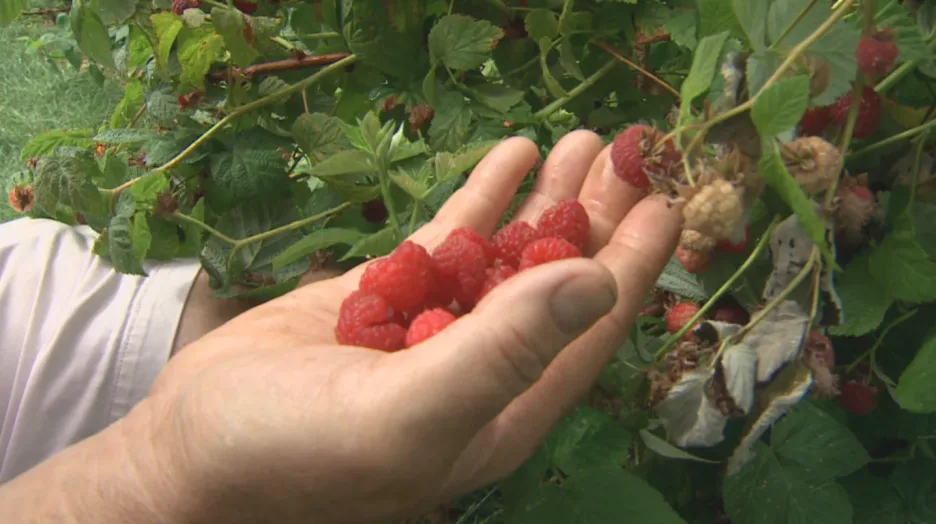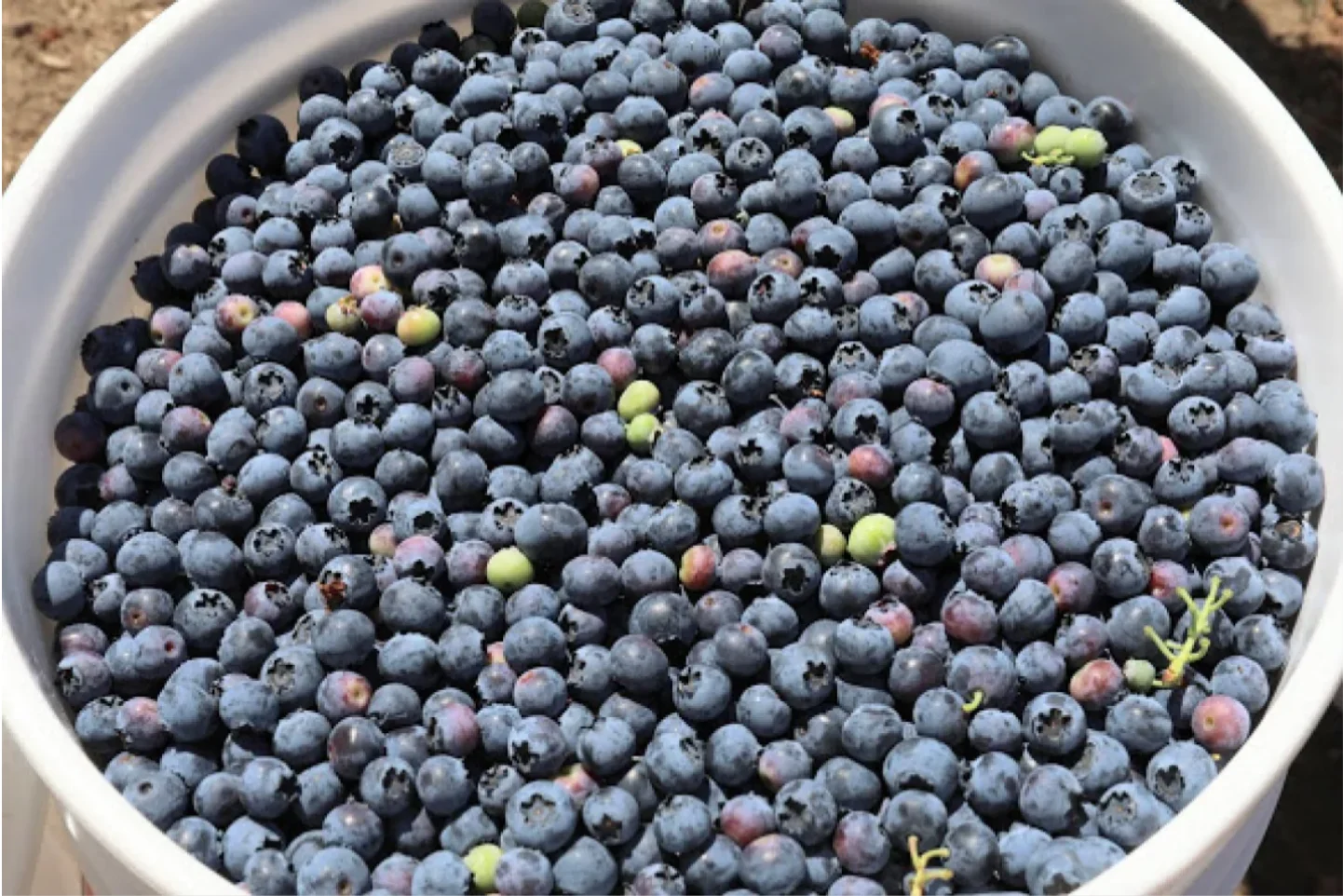
B.C. heat wave 'cooks' fruit crops on the branch in Okanagan, Fraser Valley
The heat wave that scorched Western Canada last week severely damaged fruit crops in the Okanagan and Fraser Valley as the province's two major fruit-growing regions saw multiple days of temperatures above 40 C.
President of the B.C. Fruit Growers Association Pinder Dhaliwal estimates that 50 to 70 per cent of cherry crops were damaged in the heat wave. Dhaliwal said that apples, apricots and stone fruits have also been damaged to a lesser degree.
According to Dhaliwal, the heat wave "cooked" cherries right in the orchard, noting that they are brown in colour with burned leaves and dry stems.
RELATED: Over a billion seashore animals possibly cooked to death in B.C. heat wave
"It seems like somebody took a blowtorch to it and just singed it," says the orchardist from Oliver, in B.C.'s southern Interior.
Dhaliwal added that because nighttime temperatures were also hot, the cherries did not have time to cool down between the sweltering days. Some cherries that look good on the outside have been cooked on the inside, and are hot right to the pit, he added.
Sukhpal Bal, a fruit farmer in Kelowna and president of the B.C. Cherry Association, noted that there was a heavy cherry crop this season before the heat wave, one of the best he has seen in 20 years of experience.
"It's just so discouraging to see that this heat wave came in and literally cooked a lot of the cherries." Bal said his cherries are also discoloured with burned skins.

"It's not pretty, it's not something that can be marketable by the time we get to harvest these cherries."
Bal said most of the cherries are too damaged to even be used for juices or purees.
While there are still a lot of cherries that are in good shape, Bal said that they will have to see how they ripen as the heat continues.

With nighttime temperatures of around 30 C, fruits had little time to cool down between scorching days. Pictured is a normal blueberry crop. (Michael Mcarthur via CBC)
FRASER VALLEY DAMAGE
Raspberries and blueberries have taken a biggest hit at David Mutz's Abbotsford farm in the Fraser Valley east of Vancouver."The plants are literally just cooked. You can pull the leaves off and they just crinkle in your hands."
Mutz noted the most drastic damage was caused over the three-day period between Saturday June 26 and Monday June 28.
Mutz estimates that 75 per cent of the early raspberry crop and between 10 and 30 per cent of the blueberry crop are of such poor quality that they can only be used for juice.
![cbc: Although many farmers have insurance for heat events, the compensation will not compare to profits they could make during a good crop season, pictured. (Graham Thompson/CBC)] Although many farmers have insurance for heat events, the compensation will not compare to profits they could make during a good crop season, pictured. (Graham Thompson/CBC)
SEE ALSO: 10 tips for coping with wildfire smoke, from a public health expert
A FINANCIAL HIT FOR FARMERS
"All farmers wait an entire year to pick this harvest … the overall financial impact is going to be great on the farmers," said Dhaliwal.
The B.C. Fruit Growers Association says many farmers have crop insurance for heat stress, but the compensation is much less than what a healthy crop could have earned.
Nevertheless, Mutz is optimistic that the later season will be profitable, as they pick raspberries until October.
Bal noted that this is the third year in a row where extreme weather events have damaged the cherry crop, citing torrential rain in 2019 and a frigid cold spell in January of 2020.
WATCH BELOW: BEST TYPE OF TREES TO PLANT IF YOU LIVE IN A FIRE-PRONE REGION
This article, written by Michelle Gomez, was originally published for CBC News. Contains files from David French and Daybreak South.










